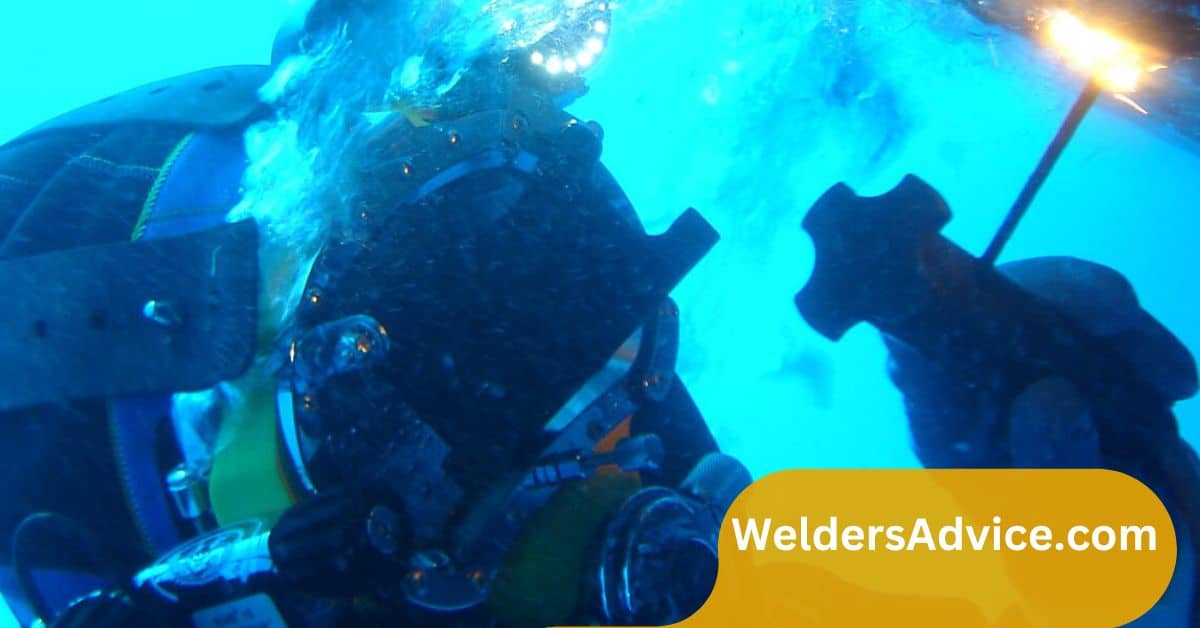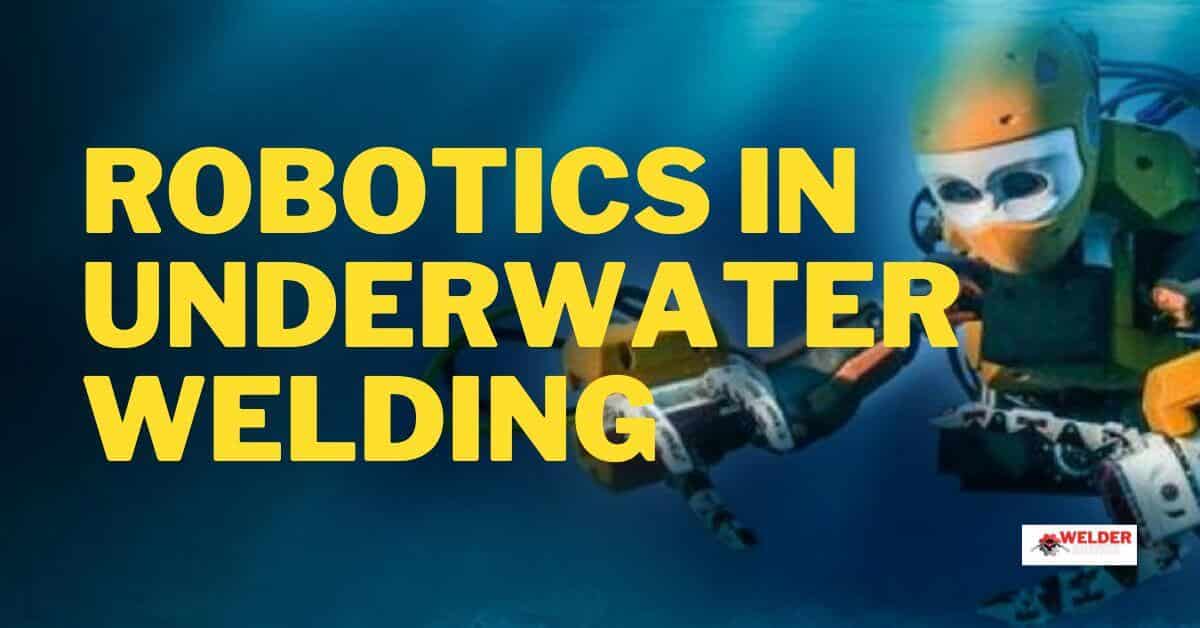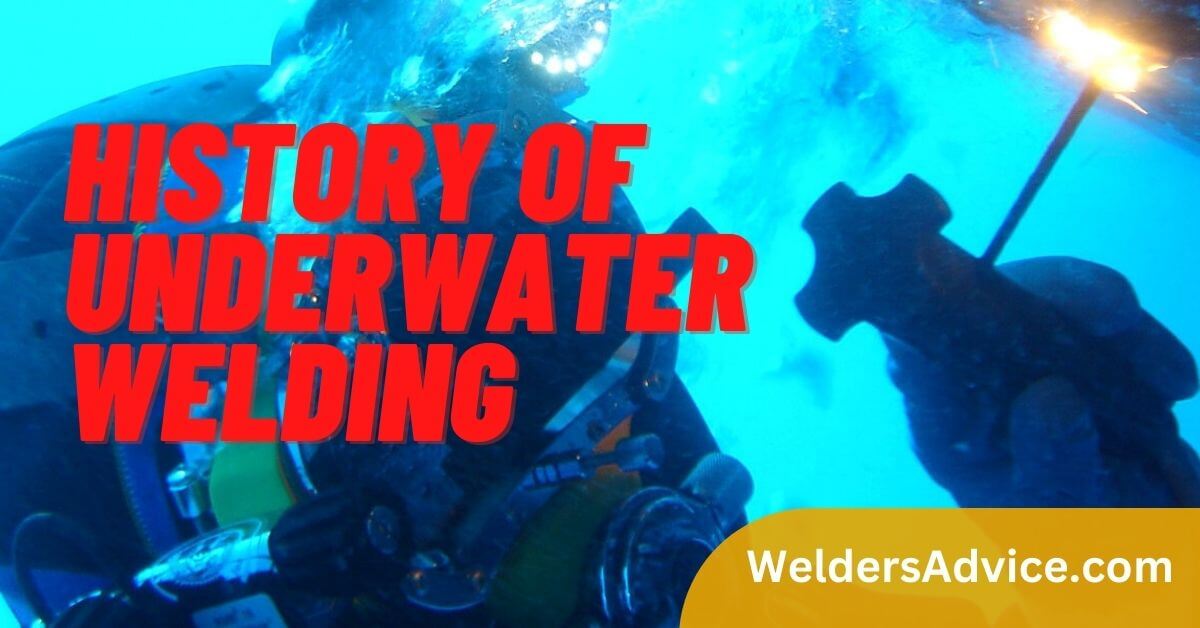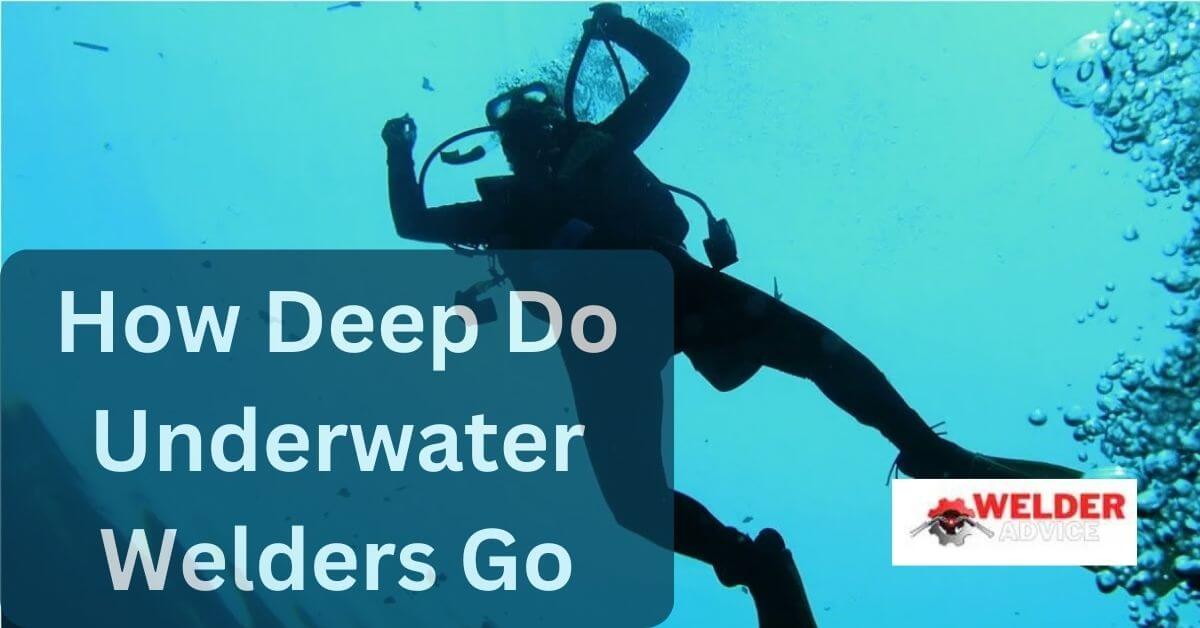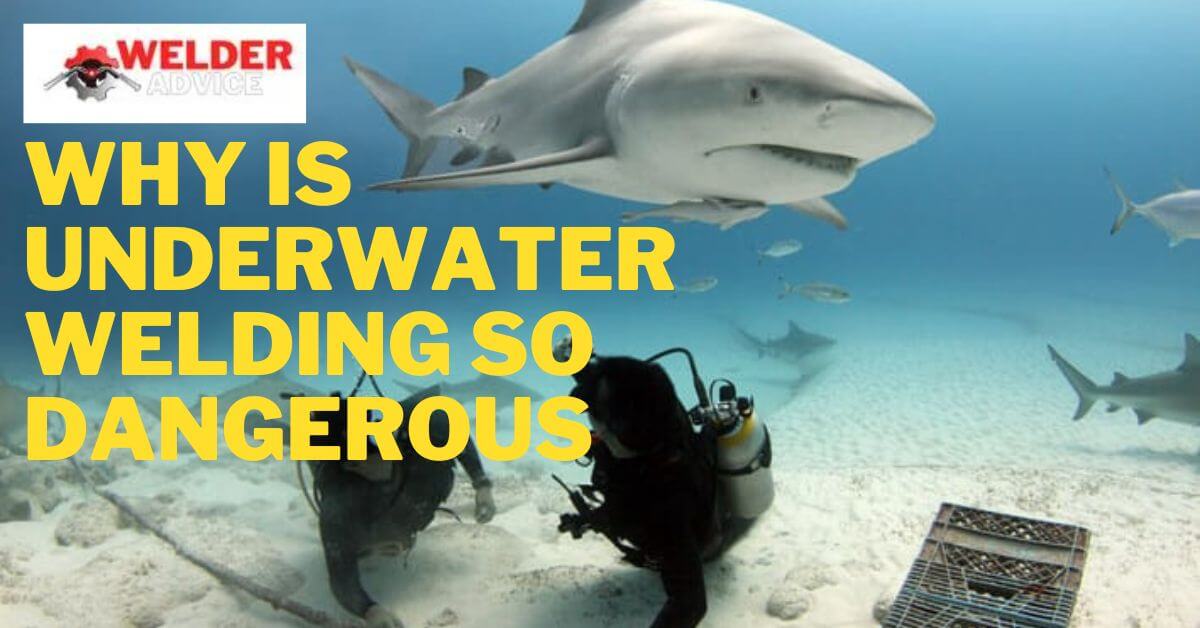Underwater welding is a highly skilled and specialized job. Most people might think that underwater welding is impossible because of the amount of pressure exerted by the water. This job requires a lot of skill, experience, and dedication. In this blog, you will get a step-by-step guide on how to become an underwater welder.
If you are interested in becoming an underwater welder, there is no better time than now! Our industry is booming with new and innovative ways to weld, and underwater welding is one of the most popular. Here is everything you need to know about becoming an underwater welder.
- What is Underwater Welding?
- How to Become an Underwater Welder
- 5 Requirements to Become an Underwater Welder
- How to Become an Underwater Welder in 10 Steps
- What do underwater welders do?
- Fixing Underwater Lines
- Building Underwater Structures
- Maintenance Work
- Working with Fiber Connection
- Turbine Repair
- Underwater Debris
- What are the Earning Factors for Underwater Welding?
- Certification Levels
- Location
- Type of Project
- Experience
- Job Benefits
- Diving Experience & Proficiency
- Welding Skills
- Travel Frequency
- Size of Company
- Necessary Soft Skills for Underwater Welding
- Ability to Work Under Pressure
- Attention to Detail
- Strong Problem-Solving Skills
- Understanding Physics
- Safety-Oriented
- Teamwork
- Good Communication Skills
- Attention to Detail
- Creative Thinking
- An Underwater Welder’s Lifestyle
- High-Risk & High-Pay for Underwater Welders
- The Benefits of Underwater Welder
- Is There Any Future for Underwater Welders?
- Final Thoughts
What is Underwater Welding?
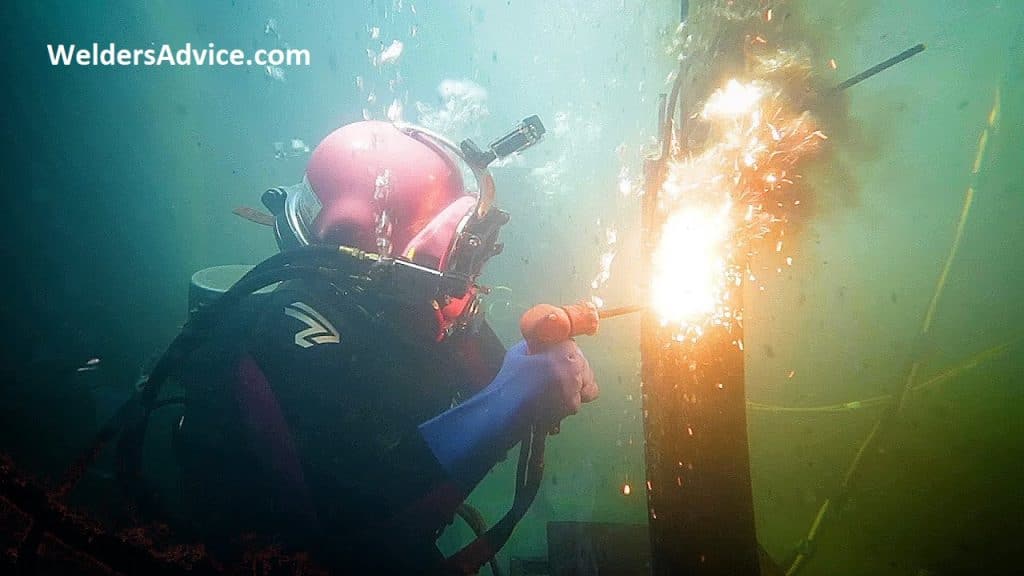
Underwater welding is a process of joining two pieces of metal by welding them together while they are submerged in water. The advantage of this process over traditional welding methods is that it allows for a more excellent range of movement, making it easier to align the pieces and avoid mistakes. Additionally, underwater welders are less likely to create sparks that could ignite materials nearby, which makes this welding safer.
How to Become an Underwater Welder
If you want to become an underwater welder, there are a few things you need to do first. First, you will need certification from an accredited institution; this can be obtained through online courses or by attending a live event. Once you have your certificate, you will need to find a job that offers training in underwater welding. You can find jobs as welders in shipyards, steel mills, power plants, and other industrial settings.
If you are interested in becoming an underwater welder, you can start by studying for a certification through accredited courses or finding a job that offers training in underwater welding. Once you have your certificate, finding a job that will allow you to practice your welding skills is essential. You can find jobs as welders in shipyards, steel mills, power plants, and other industrial settings.
5 Requirements to Become an Underwater Welder
- Earn high school diploma/G.E.D.
- Pass diving exam
- Experience
- Physical Strength
- Willingness to Take Risks
To become an underwater welder, you must meet a few basic requirements. Most notably, you will need a high school diploma or equivalent and the necessary welding certifications. You may also need to obtain a commercial diving certification to work underwater. Additionally, it is essential to have a solid physical fitness level, as underwater welding can be physically demanding. Finally, you will need to be comfortable working in potentially hazardous environments, such as high-pressure chambers and deep bodies of water. You can become an underwater welder if you meet all of these requirements.
How to Become an Underwater Welder in 10 Steps
1. Obtain a high school diploma or equivalent.
2. Pass welding certifications.
3. Obtain a commercial diving certification.
4. Increase your physical fitness level.
5. Remain comfortable working in hazardous environments.
6. Look for jobs in shipyards, steel mills, power plants, and other industrial settings.
7. Take safety training courses and practice welding in a controlled environment.
8. Follow all safety regulations to ensure the safety of yourself and others.
9. Keep up to date with the latest technology and welding techniques.
10. Stay current with industry trends and regulations.
What do underwater welders do?
Underwater welders specialize in welding projects that take place underwater. They perform various tasks, such as repairing pipelines, replacing damaged structures, removing debris, and performing maintenance work. They must have a strong understanding of welding techniques and safety procedures and work in an often hazardous environment. Additionally, underwater welders must be comfortable working with different types of welding equipment and be able to take direction from supervisors.
Fixing Underwater Lines
Underwater welders are often called upon to fix or replace underwater pipelines. This can involve welding new pipe sections, repairing existing, or replacing entire lines. Welders must accurately assess the pipeline’s condition and use the appropriate techniques for the job.
Building Underwater Structures
Underwater welders may be tasked with building, repairing, or replacing underwater structures. This can include repairing damaged bridges, replacing broken support beams, or constructing new structures. Welders must be able to work in various conditions and understand the complexities of underwater welding.
Maintenance Work
Underwater welders may also be asked to perform maintenance work on existing structures or pipelines. This can include checking for corrosion, inspecting the welds, or repairing any damage. They must be able to identify any potential problems and take the necessary steps to fix them.
Working with Fiber Connection
Underwater welders may also be asked to work with fiber connections. This involves connecting two pieces of fiber optic cable underwater. Welders must be able to link the cables and ensure the connection is secure accurately.
Turbine Repair
They also may be called upon to repair or replace ships’ turbines. This can include replacing broken parts, repairing damage caused by corrosion, or replacing entire turbine components. Welders must be able to accurately assess the condition of the turbine and use the appropriate techniques for the job.
Underwater Debris
Underwater welders may also be tasked with cutting underwater debris. This can involve removing large pieces of debris from pipelines, cutting damaged metal structures, or cutting through underwater obstructions. Welders must accurately assess the situation and use the appropriate techniques for the job.
What are the Earning Factors for Underwater Welding?
The earning potential for underwater welders mainly depends on experience, location, and the type of project they are working on. The more experience a welder has, the more they can expect to earn. Additionally, welders in specific locations may make more due to the higher cost of living. Finally, welders working on larger and more complex projects can expect to earn more than those working on smaller, more straightforward projects. Here we are discussing some factors for underwater welder earning.
Certification Levels
Underwater welders must possess specific certifications to be able to work. The more certifications a welder has, the more they can expect to earn.
Location
The location of the job will also affect the earnings of underwater welders. Employment in more rural locations may pay less than in urban areas due to the higher cost of living.
Type of Project
The type of project a welder is working on will also affect their earnings. Welders working on larger and more complex projects can expect to earn more than those working on smaller and simpler projects.
Experience
Experience is also a significant factor in determining the earnings of underwater welders. The more experience a welder has, the more they can expect to earn.
Job Benefits
Underwater welders may also earn more if they have access to job benefits such as health insurance, vacation time, and retirement plans.
Diving Experience & Proficiency
Underwater welders must also have experience and proficiency in diving. Proper diving certification is essential for any welder who wants to work underwater. The more experience and proficiency a welder has, their earning potential will be higher.
Welding Skills
Underwater welders must also have the right welding skills to do their job effectively. The more welding skills a welder has, the higher their earning potential will be. This includes working with different welding materials, reading blueprints, and understanding safety protocols.
Travel Frequency
Underwater welders may earn more depending on how often they travel. For example, welders who are required to travel frequently for work may make more than those who only do local jobs. Additionally, welders who can take on more remote jobs may also be able to earn more than those who are only able to take on local jobs.
Size of Company
The size of the company for which the underwater welder works also affects their earning potential. Working for a larger company typically means more job security and a higher salary, while working for a smaller company may offer less job security but more flexibility. Additionally, larger companies may offer more benefits and opportunities for advancement.
Necessary Soft Skills for Underwater Welding
Underwater welding is a specialized and demanding field. In addition to having the hard skills and technical knowledge necessary for the job, welders must also possess the required soft skills to be successful. Some of the essential soft skills for underwater welders include:
Ability to Work Under Pressure
Underwater welding is a fast-paced job, and welders must be able to think quickly and make decisions on the spot.
Attention to Detail
Underwater welders must be able to pay attention to details and follow instructions carefully to ensure the job is done correctly.
Strong Problem-Solving Skills
Welders must think on their feet and come up with solutions to unexpected problems that may arise while underwater.
Understanding Physics
Underwater welders must thoroughly understand physics and the principles of buoyancy and pressure to do their job safely and effectively.
Safety-Oriented
Welders must be safety-oriented and follow all safety protocols underwater to avoid potential hazards.
Teamwork
Underwater welding is often done in teams, and welders must be able to work together effectively to accomplish the job.
Good Communication Skills
Communication is essential in any job, but especially in underwater welding. Welders must communicate effectively with their team members to ensure the job is done safely and correctly.
Attention to Detail
Underwater welders must be able to pay attention to details and follow instructions carefully to ensure the job is done correctly. Welders must be able to recognize any potential problems that may arise while they are underwater and take the necessary steps to resolve them. Additionally, welders must be able to read blueprints and understand the job’s specifications to ensure that the welding is done accurately and safely.
Creative Thinking
Underwater welders must also be creative thinkers to come up with new solutions to unexpected problems that may arise while they are underwater. In addition to having the technical knowledge and hard skills necessary for the job, welders must also be able to think outside the box and come up with new ideas that could help them complete the job more efficiently. Additionally, welders must be open to learning new techniques and be willing to take on new challenges to stay up-to-date with the latest advancements in welding technology.
An Underwater Welder’s Lifestyle
Underwater welding is a demanding job that requires a great deal of commitment and dedication. Welders must be prepared to work long hours in potentially hazardous conditions and be comfortable working in confined spaces and with heavy machinery. Additionally, welders must be able to work effectively in teams and communicate with their team members effectively.
To maintain a healthy lifestyle while working as an underwater welder, one must take the necessary steps to protect one’s physical and mental health. This includes
- Getting enough rest
- Eating a balanced diet
- Exercising regularly
- Taking regular breaks from work
Additionally, welders should take the necessary steps to protect their hearing and vision from the loud noises and bright lights associated with underwater welding. Furthermore, welders need to defend themselves from any potential hazards that may arise underwater, such as strong currents or extreme temperatures. Finally, welders must stay up-to-date on the latest safety protocols and welding techniques to ensure they work as safely and efficiently as possible.
Also, Consider Reading:
- Underwater Welder Salary
- Is Welding a Good Career?
- Why Does Underwater Welding Shorten Your Life
- Why Do Welders Drink Milk?
High-Risk & High-Pay for Underwater Welders

Underwater welders are in high demand due to their unique skillset and the dangerous and demanding nature of the job. As a result, underwater welders can expect high pay for their work. The pay for underwater welders is often higher than other welders due to the added risk and difficulty associated with the job. Additionally, underwater welders may receive additional pay for overtime or for working in hazardous conditions.
Aside from the high pay, underwater welders can also enjoy a unique lifestyle and the satisfaction of knowing that they are helping to build and maintain the infrastructure of the world. Underwater welders can expect to travel to different locations, work in challenging conditions, and form strong bonds with their teammates. While the job can be demanding and dangerous, it can also provide a sense of accomplishment and satisfaction that can be hard to find in other lines of work. Here are some high-risks listed of underwater welding.
Minimal Visibility
Underwater welding is a very specialized skill requiring much practice and patience to become proficient. One of the most difficult challenges underwater welders face is their minimal visibility while working. Welders must be able to precisely perform their duties and make quick decisions, all while working in an environment with limited visibility. As such, underwater welders must be highly skilled to succeed, and safety is always of the utmost importance.
Extreme Temperature
Underwater welders must withstand extreme temperatures to carry out their job. Underwater welding involves welding in pressurized chambers to keep the water out and provide a dry environment for the welders. This means that the welders must be able to handle temperatures that can range from -50°C to over 100°C. Furthermore, underwater welders must also have the physical and mental strength to remain in such extreme conditions for extended periods to complete their work correctly.
High Wave Currents
High wave currents can make the welding process more complex and cause the weld to be of poor quality. Underwater welders must thoroughly understand how wave currents affect the welding process to ensure the best possible outcome.
High Pressure
It involves welding metals underwater, often in extreme depths and high-pressure conditions. This means that underwater welders must be well-trained and prepared to handle the intense pressure of the job. To become an underwater welder, one must obtain a commercial diving certification and complete specialized welding and underwater cutting courses. With the proper training and experience, underwater welders can make a successful career in this exciting field.
Also Read: Best Flux Core Welder Under 300 [Buying Guide]
The Benefits of Underwater Welder
Underwater welding can be a lucrative and rewarding career. Several benefits come with a career in this field, including:
High Pay
Underwater welders are usually highly paid for their work. Depending on the company, experience, and skill level, welders can expect to make a comfortable living.
Variety
Underwater welders have the opportunity to work on a variety of projects, from repairing ships and pipelines to constructing new structures.
Adventurous
Underwater welding is an exciting and adventurous job. Welders get to explore and work in a variety of unique and challenging environments.
Independence
Underwater welders often work independently, which allows them to work at their own pace and set their schedule.
Teamwork
Although underwater welders are often independent, they can work with a team of other welders and divers. This can help them hone their skills and build strong working relationships.
Overall, there are many benefits to pursuing a career in underwater welding. The job offers a great deal of opportunity and potential for growth, and the pay is often quite good. If you think this profession might be the right fit for you, be sure to research all the training and certification requirements in your area. Good luck!
Is There Any Future for Underwater Welders?
Yes, there is a bright future for underwater welders. With the growing need for infrastructure repairs, maintenance, and construction, the demand for underwater welders is expected to stay strong in the years to come. Additionally, advances in technology are making the job of underwater welding easier and more efficient, allowing more people to pursue this profession. Companies are always looking for skilled welders to help them build and maintain the world’s infrastructure, and they are willing to pay well for the services of experienced underwater welders.
Final Thoughts
Becoming an underwater welder can be a rewarding and challenging career. Anyone can succeed in welding with the right training and experience. If you are interested in learning more about becoming an underwater welder, check out the resources available on this website. I hope you have come to know how to become an underwater welder. If you have any doubt, feel free to ask.

